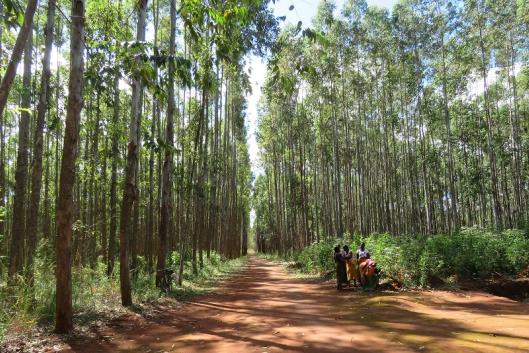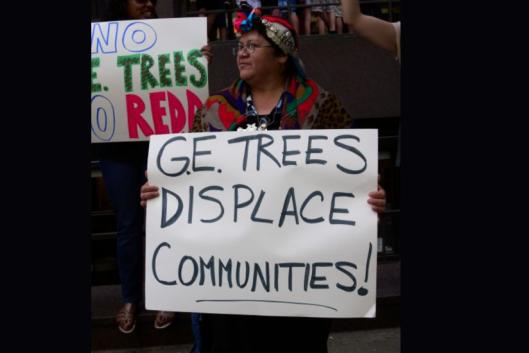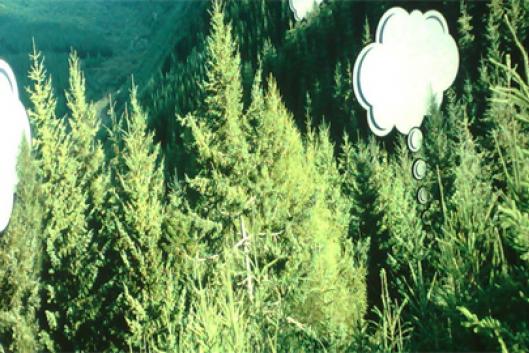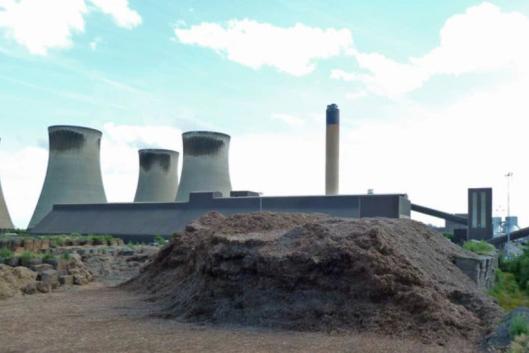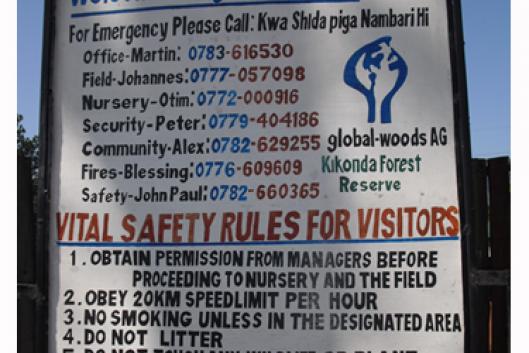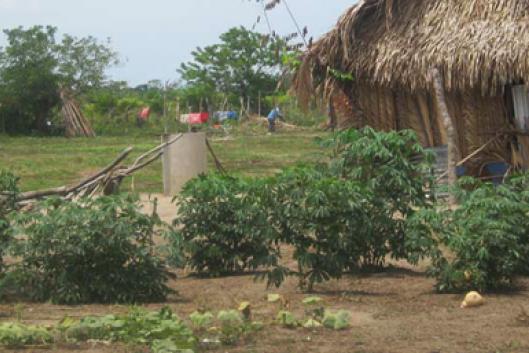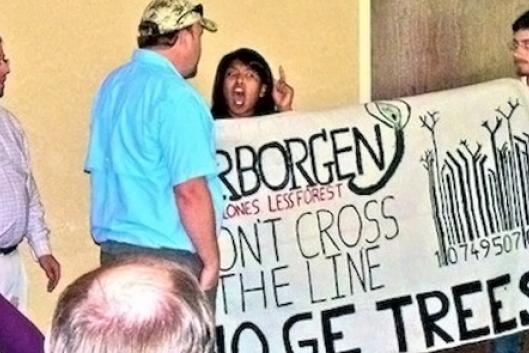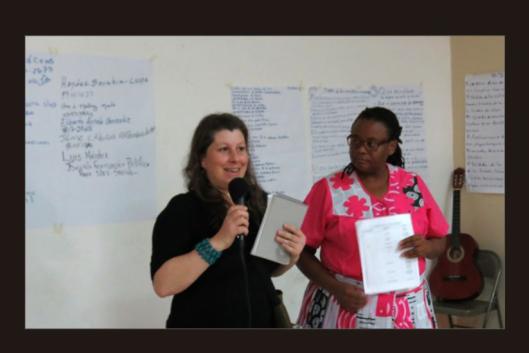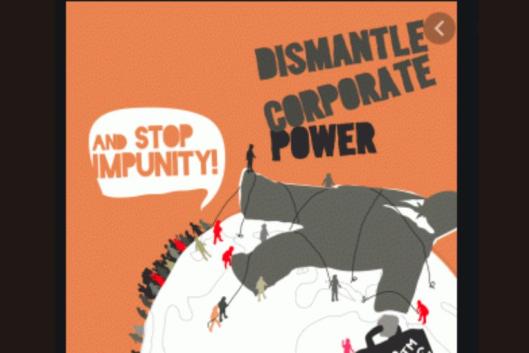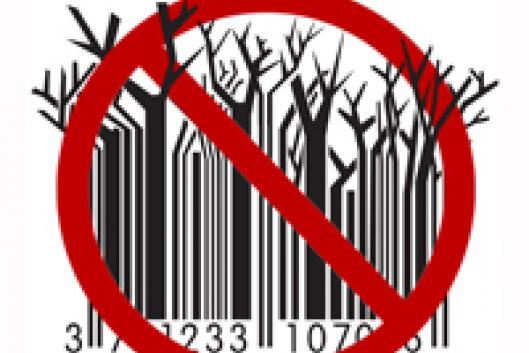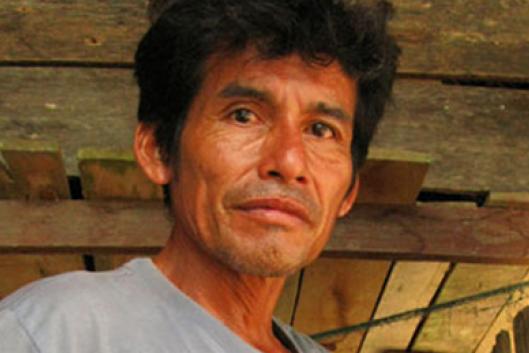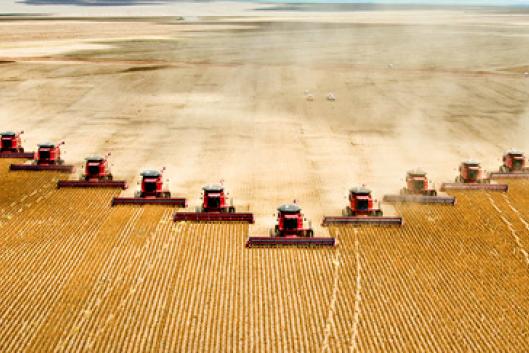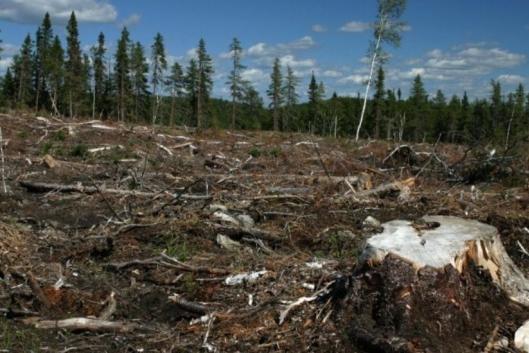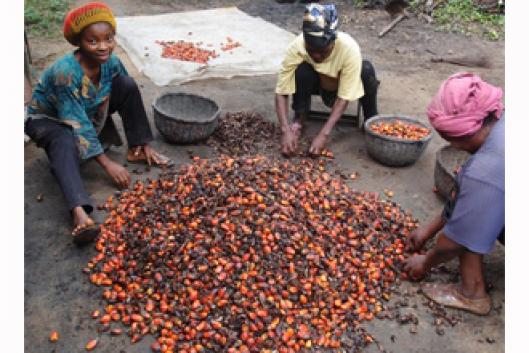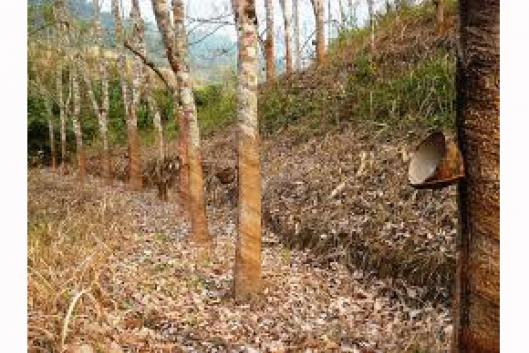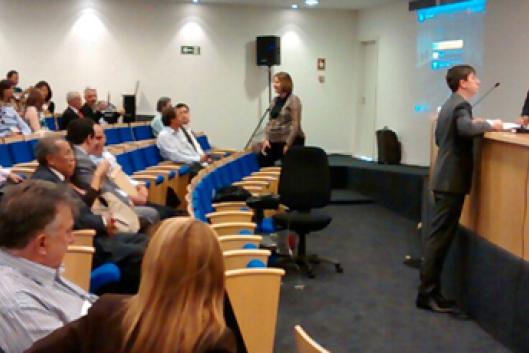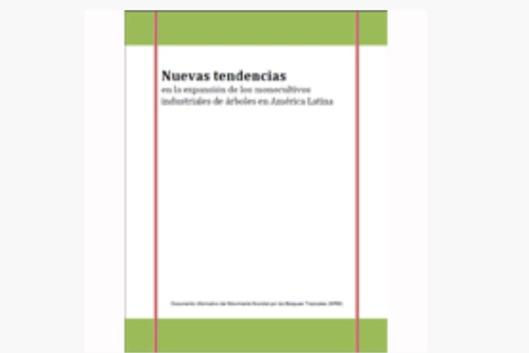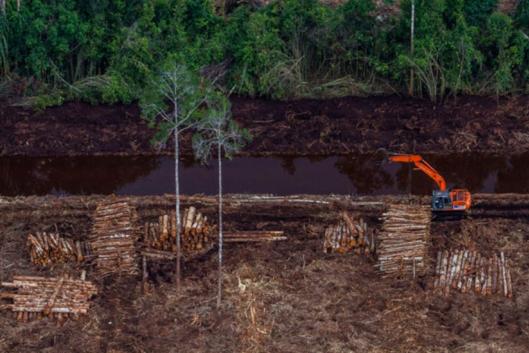Dismantle the power of transnational plantation corporations!
There is no “smart monoculture”: Support the People’s Climate March!
Bulletin Issue 206 – September 2014
The ugly face of a 'bio' economy: promoting further deforestation and peoples' displacement
WRM Bulletin
206
September 2014
OUR VIEWPOINT
THE UGLY FACE OF A 'BIO' ECONOMY: PROMOTING FURTHER DEFORESTATION AND PEOPLES' DISPLACEMENT
-
26 September 2014Genetic engineering allows scientists to modify trees by inserting genetic material from another tree of the same species, from another tree species or from another species altogether. The attempts by research and plantation companies in the US, Brazil and other countries to commercialize engineered trees are posing an enormous risk to the world’s forests.
-
26 September 2014Just a few years ago forestry giant Weyerhauser, a US-based logging company, began running a series of intriguing adverts in airports and magazines. The ads depicted a northern temperate forest along with the question “What could a tree be?”. Thought bubbles hovered above the forest canopy and a paragraph of text asked “Medicine that fights cancer? Alternative fuels for our cars? Do you think a tree could be biodegradable plastic or food? or clothing”?, Forestry, it seemed to say, is no longer just about pulp and timber – a new trend seems to have started where the markets for trees just got a whole lot bigger.
-
-
26 September 2014Globally, many people rely on wood as fuel for cooking and heating, but increasingly, commercial and industrial interests are also turning to wood for producing so-called ‘bioenergy’. Massive coal plants in the EU and the USA are co-firing large amounts of wood alongside coal. Some coal power plants are even converting entirely to wood pellets, for which, in several countries, they can be rewarded with 'renewable energy' subsidies. Those energy facilities require vast amounts of wood, creating a new international trade in wood chips and pellets, and further threatening forests, ecosystems, human rights and climate (1).
-
26 September 2014The commercial tree plantation located in the Kiboga District, the ‘cattle corridor’ of mid-western Uganda, under the name of “Kikonda Forest Reserve”, covers 12,182 hectares of land owned by Uganda’s National Forestry Authority (NFA). The land is managed, however, by the German private shareholding company Global-Woods AG. The plantation project started in 2002 with a 49-year ‘tree-farming’ lease agreement granted by the NFA. Each year, around one million trees are planted over an area of 1,000 hectares, with the goal of capturing carbon dioxide from the atmosphere and ‘storing’ it as well as of producing saw logs and fuel wood (1).
-
26 September 2014In the early 17th century, during the colonial era, shipwrecked Africans reached the Caribbean coast, inhabited by the Kalinagu or Caribe people. Over the years, cultural syncretism gave rise to the ethnic identity of the Garifuna people. The fusion produced the Garifuna language, religion and traditions. The Garifuna people settled river estuaries and marshes on the coasts of several Central American countries, where they engaged in fishing and subsistence agriculture.
-
PEOPLES IN ACTION
-
26 September 2014More than 330 international organizations, social movements and networks are publicly denouncing the corporate takeover of the climate negotiations due to take place September 19-23 at the United Nations headquarters in New York. The declaration, launched September 16, highlights the need to change the economic model rather than proposing mechanisms based on market logic, such as REDD, Climate Smart Agriculture and Sustainable Energy for All. The declaration also issues a call for organizing and mobilizing in New York and around the world, to push for a transformation of the structural causes of the climate crisis. See the declaration at:
-
-
26 September 2014Four leaders of the Ashéninka people of the Peruvian Amazon were murdered by illegal loggers operating on their lands. Among them was Edwin Chota a prominent anti-logging campaigner who had fought for his peoples' right to gain titles to their land and expel illegal loggers who raided their forests on the Brazilian border. Sign the petition: http://www.thepetitionsite.com/120/750/658/demandjustice-for-the-amazon-tribal-leaders-murdered-by-illegal-loggers/
RECOMMENDED
-
26 September 2014In Thailand, both the army and civilian governments define forests as “wilderness free of inhabitants”, neglecting that tropical forests have always been home to indigenous and peasant communities. Laws have marked local people as illegal encroachers, allowing forced evictions as the primary measure to “preserve the land” – often that meant installing monoculture plantations. Forest officials have intensified a crackdown on forest communities that are calling for change in forest management by pushing ahead with a grand reforestation plan that may lead to an even bigger scale of forced evictions than previous such government reforestation plans.
-
26 September 2014Producing cheap palm oil comes at a high price: destruction of rainforests, labour exploitation, and brutal land grabbing. With lands in Indonesia and Malaysia becoming more difficult for palm oil companies to acquire, attention is shifting to Africa as a new frontier for low cost palm oil production for export. See publication here: http://www.grain.org/article/entries/5031-planet-palm-oil-peasants-pay-the-price-for-cheap-vegetable-oil
-
26 September 2014A study from Agroforestry World has shown that while China has increased the amount of tree cover with a reforestation and ‘payment for ecosystem services’ program, it has failed to protect natural forests. Rubber and pulpwood plantations have replaced natural forests on sloping land. Equating plantations with forests in forest management policies and statistics allows governments to hide serious environmental impacts that the plantations cause. Rubber and pulpwood plantations are being planted in nature reserves, national protected areas, and important protected watersheds.
-
26 September 2014The area planted in eucalyptus and pine in Latin America has doubled in the past three decades, due to the action of national and transnational companies. Wood production is intended mainly for pulp and paper manufacture. WRM found several recent trends in this process, such as the expansion of monocultures of African palm (oil palm), greater research efforts into transgenic trees, the phenomenon of the “green economy” and the increasing involvement of speculative financial capital. These are described in the publication “New Trends in the Expansion of Industrial Tree Monocultures in Latin America” which aims to call attention to and disseminate information about these developments.
-
26 September 2014For Indonesian logging company Asia Pacific Resources International Holdings Limited (APRIL), clearing of peat forest on an island of Sumatra is "in line with its Sustainable Forest Management Policy" because, according to APRIL, the area wasn't of high conservation value. Differences over what is considered high conservation value allow APRIL to reap the PR benefits that come with its voluntary commitment to not log high conservation value forest in all its concessions. The NGO Greenpeace presented clear documentation of APRIL destroying forest on deep peat.
-
26 September 2014Representatives of organizations from different Latin American countries and of international networks met together in La Ceiba, Honduras, verified from local testimonies the serious situation faced by campesino, indigenous and Garifuna communities due to the voracious advance of monocultures of African palm. They denounce the serious violations of human rights, the dispossession and forced displacement of peoples, the criminalization of the struggle in defence of their territories, and the threats and persecution they have been subjected to for years in favour of business interests, to the clear detriment of collective rights.
